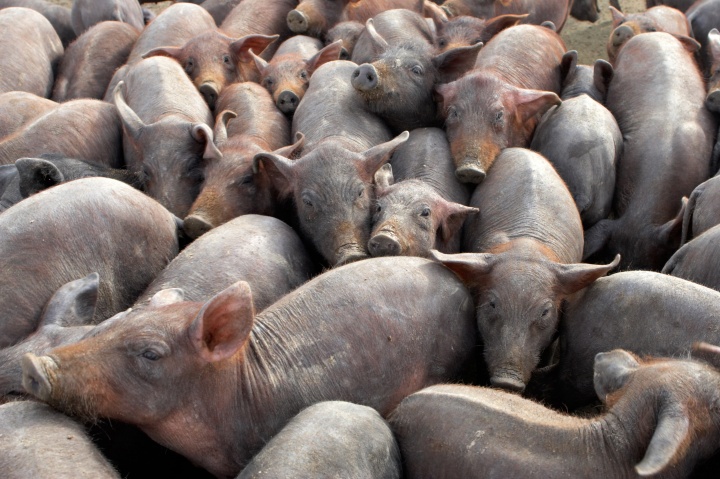A Telling Event From Jesus Christ's Ministry
Downloads
A Telling Event From Jesus Christ's Ministry

However, the Bible includes a report of a telling incident that shows whether Jesus viewed pigs as suitable for food.
Before we examine that account, let's understand a part of Christ's character—that He apparently was never wasteful.
Many have puzzled over this astounding incident in which Jesus precipitated the destruction of a valuable herd of 2,000 pigs—enough to feed many thousands of people.
On two occasions during His ministry Jesus miraculously multiplied a few fish and loaves of bread to feed large crowds that followed Him—on one occasion 4,000 and on the other 5,000 strong (Matthew 14:15-21; Matthew 15:32-38). But, in spite of an abundance of food, Christ did not allow any of it to go to waste. "So when they [the crowds] were filled, He said to His disciples, 'Gather up the fragments that remain, so that nothing is lost'" (John 6:12).
The disciples gathered up 12 baskets of leftover food after the first of these miracles and seven after the second. He specifically told His disciples not to allow any of it to be thrown away.
With the understanding that Jesus was compassionate and not wasteful toward food, let's examine an incident involving Him and some unclean animals—a large herd of pigs.
Mark 5:1-13 records that Jesus crossed the Sea of Galilee by boat to the region of Gadara, a gentile (non-Jewish) area on the eastern shore. There He was met by a demon-possessed man from whom He would shortly cast many evil spirits.
In this remarkable encounter, the demons requested that Jesus send them into a herd of 2,000 swine on a nearby hillside. Jesus granted their request, and, when the demons entered the swine, "the herd ran violently down the steep place into the sea, and drowned in the sea" (verse 13).
Many have puzzled over this astounding incident in which Jesus precipitated the destruction of a valuable herd of 2,000 pigs—enough to feed many thousands of people. Yet we should not be surprised when we understand the biblical instruction that these animals should never have been raised for food, and their owner was acting in defiance of God's laws.
Beyond question is that Jesus didn't consider the swine to be suitable for food—even for the gentiles of this area. The compassionate Savior of mankind, the one who ordered scraps of bread and fish to be gathered up so none would go to waste, would never have wasted such a valuable resource had He considered the pigs to be an acceptable part of the human diet.
Jesus is "the same yesterday, today, and forever" (Hebrews 13:8). Animals He viewed as unfit for human consumption 2,000 years ago remain unfit for us to eat in our day.
